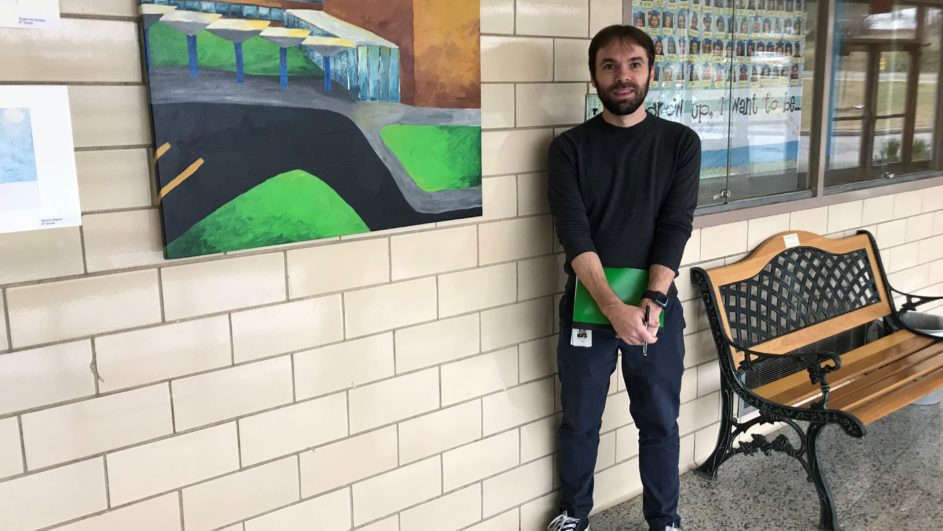Bradley Clayton knows that his students want to meet their potential, but for many of them the challenges of life are like clouds that make it hard to see where they’re headed.
Clayton, a therapist at Whittle Springs Middle School, sees his own role as helping students find their way through those clouds, “like shining a flashlight for them to try and figure out where it is they want to be.”
Thanks to a partnership with the Helen Ross McNabb Center, many more Knox County Schools students now have access to that kind of support.
Last year, the Knox County Board of Education agreed to increase the number of master’s-level therapists at district schools, and there is now a therapist at each middle and high school.
Lindsay Stone, director of children and youth mental health programming for Helen Ross McNabb, said the program represents the largest expansion in the history of that agency’s school-based services program.
The goal of the initiative is to provide treatment for students within the school setting, while also offering home visits and family counseling. Students can request services or can be referred for treatment by counselors, teachers or other school employees. In the case of a referral, the therapist will contact the student and their family to see if they’re interested in receiving treatment.
If necessary, the therapist can refer students for other services, including medication or outpatient psychiatric treatment.
Kike Kotsianas supervises therapists at 11 different schools and said they try to set goals with the student and their parents at the front end of the process because students are more likely to pursue a treatment plan that is aligned with their own goals.
Kotsianas previously was a therapist at Northwest Middle School, where she helped students who were facing challenges including depression, the impact of trauma and issues related to grief or the death of loved ones.
“If a kid is struggling with a mental health issue it can absolutely affect their ability to function in the classroom,” she said. “They may be getting in trouble a lot; they may be doing poorly academically. And so as we help them work through the mental health stuff, that’s when we’ll be able to see change in their ability to be successful at school.”
One benefit of a comprehensive system of mental health services is that students can continue to receive treatment even as they move from middle to high school – or if they change schools within KCS.
Clayton, for example, was a therapist at Christenberry Elementary before moving into the full-time role at Whittle Springs. Principal Joann Bost said that has been a great advantage in his current role.
“Since he was at one of my feeder schools, he knows this community,” she said. “And that has been a huge benefit because people trust him … The families trust him; the kids trust him; he’s familiar to them.”
Having a familiar therapist in the hallways can also provide space for teachers, counselors and administrators to focus on their own work with students. Stone, of Helen Ross McNabb, said that from what she’s seen, school employees have embraced the new initiative because they recognize the need.
“They want students to have that additional support,” she said.
Josh Flory is a multi-media specialist with Knox County Schools and writes this blog, Hall Pass, for the KCS website.

